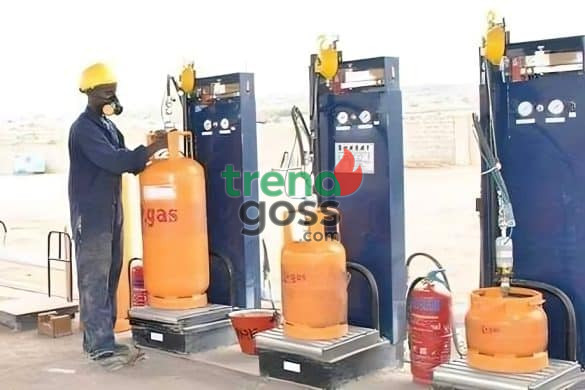Nigerians are groaning under the weight of a fresh and severe hike in the price of Liquefied Petroleum Gas (LPG), commonly known as cooking gas. Investigations across major cities reveal a distressing situation where the cost per kilogram has leaped unexpectedly, putting immense pressure on households and businesses alike.
In Lagos, a visit to several gas retail outlets showed prices hovering between ₦1,500 and ₦1,700 per kg. A food vendor, Mama Modinat, lamented how the constant price fluctuation is crippling her business. “I use gas every day to cook for my customers. Just last month, we were buying for ₦1,100. Now, I am paying ₦1,300. How much is the profit from a plate of food?” she asked with visible frustration.
The story is even more dire in the Federal Capital Territory, Abuja. Residents in areas like Lugbe and Durumi reported paying as high as ₦1,700 to ₦2,000 for a single kilogram of gas. Similar sharp increases were recorded in Port Harcourt and Ogun State, leaving consumers bewildered and angry.
When contacted, industry experts pointed to a combination of factors. Mr. Clement Isong of the Major Energy Marketers Association of Nigeria (MEMAN) cited recent supply disruptions, including industrial actions at key production facilities. He, however, assured of long-term plans under the ‘Decade of Gas’ initiative to stabilize the market.
The Federal Government has since directed the regulatory authority, NMDPRA, to intensify monitoring of depots to prevent hoarding and profiteering. The Minister of State for Petroleum Resources (Gas), Ekperikpe Ekpo, confirmed that the issues which led to the supply crunch have been resolved and normalcy is gradually returning.
Despite these assurances, retailers like Kingsley Paul in Abuja say they are trapped. “We still have old stock bought at a higher price. We cannot sell at a loss. Once the depot price comes down, we will adjust ours immediately,” he explained.
With the festive season approaching and demand set to increase, many Nigerians are anxiously waiting to see if the promised price reduction will come in time to ease their burdens.






